Personal Cybersecurity Perceptions in the US and Europe

CUJO AI has surveyed four countries: the US, Germany, France, and Italy, to examine how consumers see cybersecurity threats, what privacy threats concern them the most, and how many people are directly impacted by cybercrime. This article is based on a small part of the survey’s results. For a more extensive view of the results, download the full 2021 Cybersecurity Perceptions Survey Report to find out:
- How many people would switch their Internet Service Provider to get a more secure connection?
- Who do they think is the most responsible for preventing cybercrime and cyberattacks?
- What consumers do to improve their home network security?
Interested in ISP security solutions and newest developments? Visit our dedicated ISP Security hub for the latest insights.
Americans Experience More Online Threats
People in the US said they use smart devices almost twice as often as Europeans. The security of the Internet of Things (IoT) devices is a longstanding issue, as these devices often open opportunities for malicious actors to infiltrate home networks and target private data on NAS devices, monitor or abuse network traffic, as well as create botnets of IoT devices.
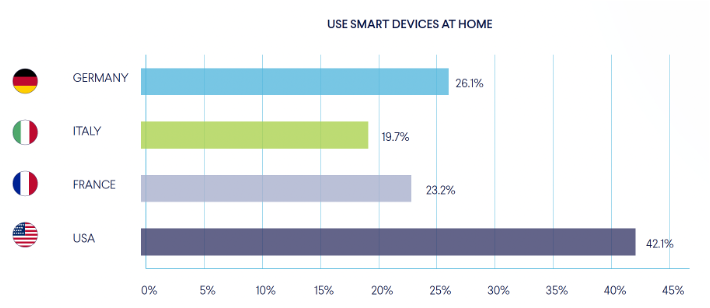
In addition, Americans claim to experience more cybercrime personally or in their close circle. Germans are the outliers here, with almost 30 percent fewer experiences with cybercrime reported both personally and in their close circle.
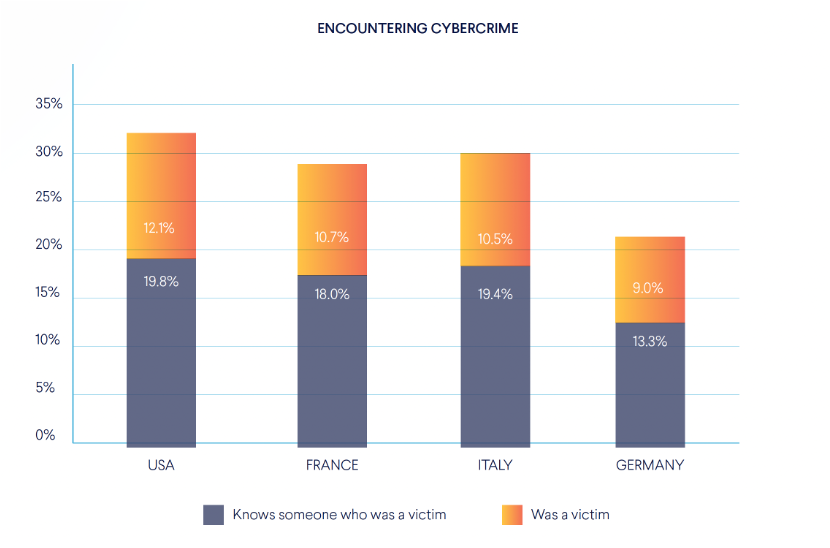
Europeans Are Less Confident in Ability to Protect Their Home Networks
Overconfidence in one’s ability to protect themselves might lead to dire consequences, as the home security threat landscape is constantly evolving. Our residential honeypot data clearly shows that home networks and devices are under massive attack volumes, which might go unnoticed by most consumers.
Considering this, it is quite alarming to note that more than half of Americans said they found home network security not challenging at all or only slightly challenging. Among Europeans, the French were least confident in their abilities, with only a third of respondents saying that home network security was not challenging at all or only slightly challenging.
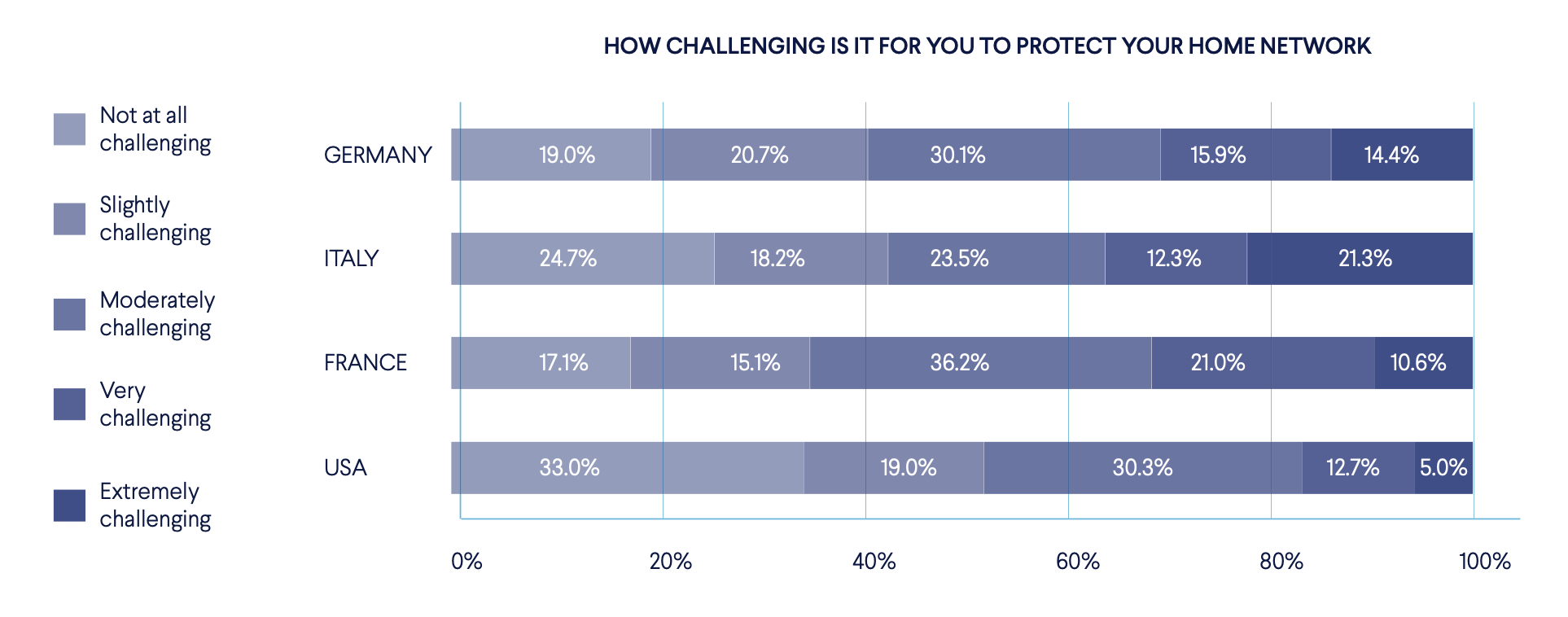
We asked respondents to tell us what security measures (if any) they had taken in the last 12 months to improve their home and device security. Overwhelmingly, the two most popular solutions were cybersecurity software and ISP security solutions. Americans had similar numbers of people installing security software to Italy and France, with Germany leading security software usage by a lot. On the other hand, Americans are clear leaders in ISP security usage. Nevertheless, this data also shows that at least a third of people do nothing to improve their cybersecurity.
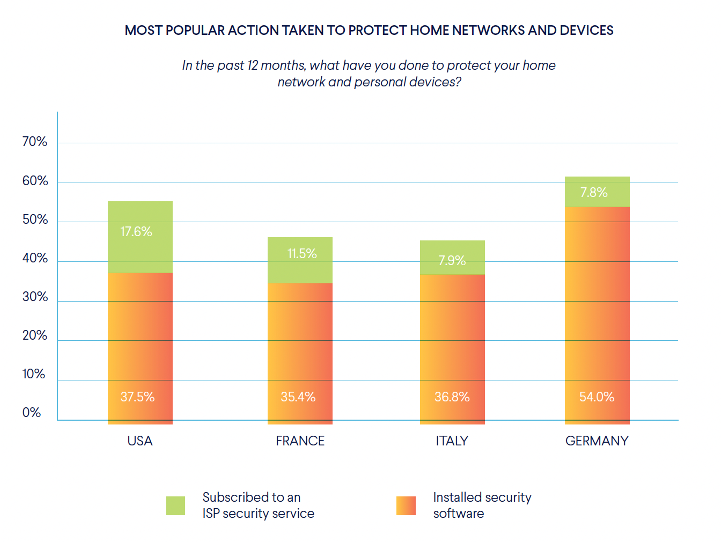
Americans Least Concerned About Security Online
Over 40 percent of respondents from the US said they were not concerned at all or only slightly concerned about security online. In Europe, the number was a bit lower, with 30-35 percent. In all four countries, around 30 percent of people were either very or extremely concerned about security on the Internet.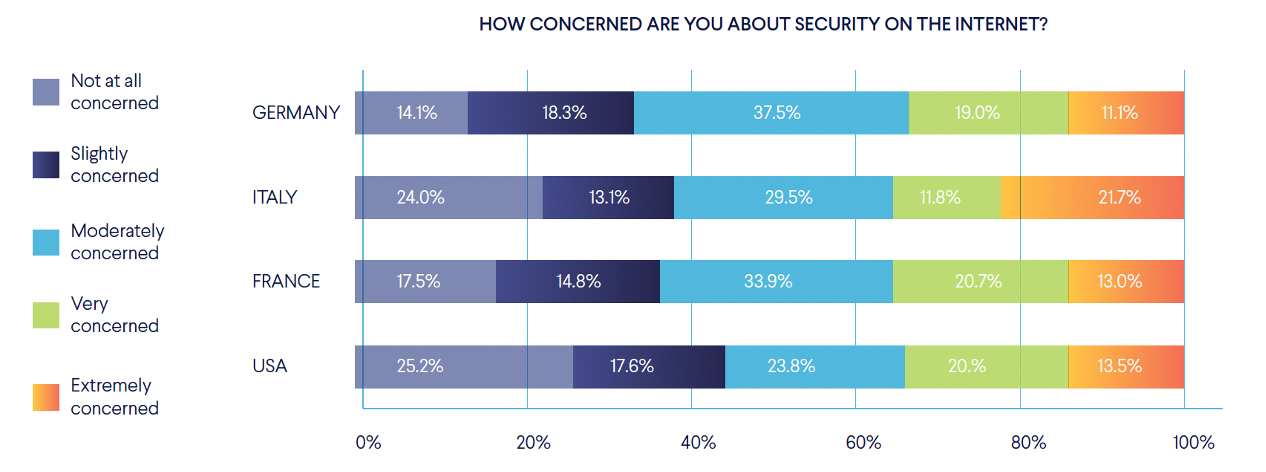
Network Service Providers Seen as Most Responsible for Cybersecurity
We asked respondents to tell us who they felt was responsible for preventing cybercrime and cyberattacks. People could select multiple responsible parties, such as software developers, ISPs, the Government, themselves, among others. In all countries, most respondents felt that Network and Internet Service Providers were responsible for cybersecurity. US respondents chose fewer options to answer this question than Europeans.
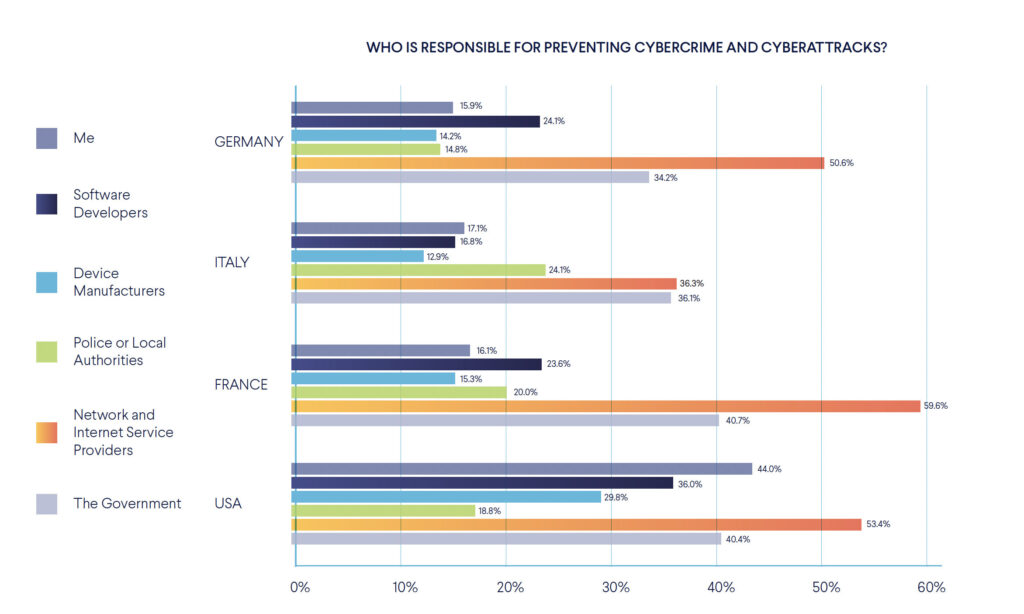
Americans also said that they were responsible of cybersecurity themselves more than twice as often as Europeans.
Identity Theft Worries Both Americans and Europeans
Close to 99 percent of all respondents were worried about privacy threats, with Americans and French being the most worried about identity theft, while Germans and Italians viewed identity theft and unauthorized personal data use as similarly daunting. Only under 2% of people said they did not worry about privacy threats online.
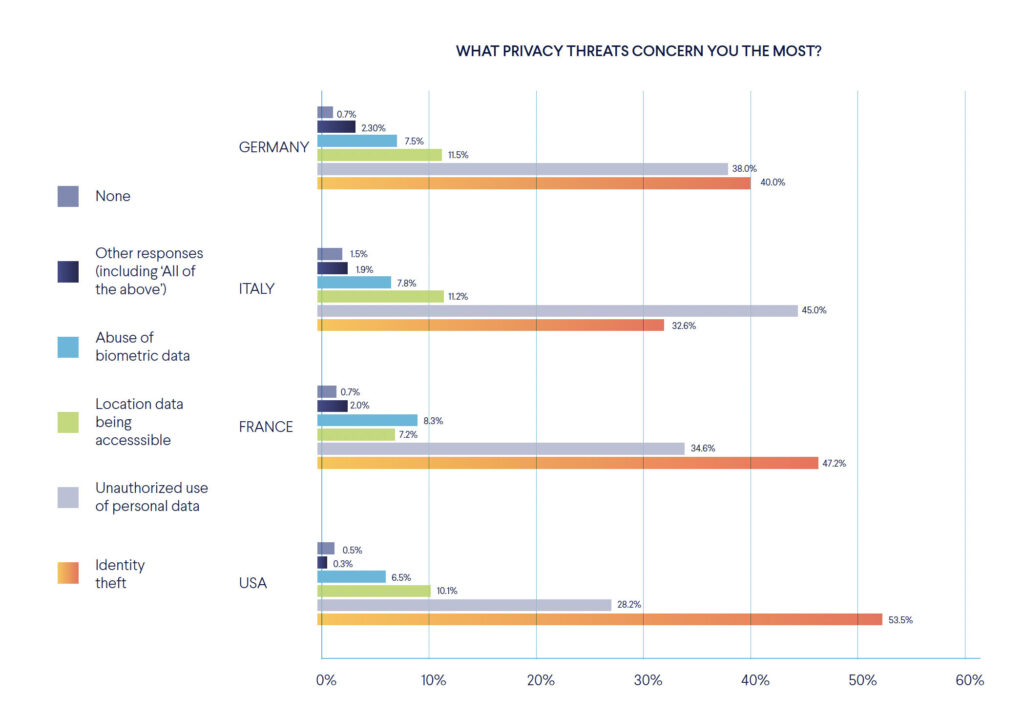
What Americans and Europeans Agree On?
In general, the survey showed how similar people’s concerns about cybersecurity are. All countries have substantial populations that are not doing anything to protect their devices and networks, and similar numbers of people are concerned about cybercrime and find security challenging, a similar number of households have children using the internet and, presumably, concerned about digital parenting solutions.
To see more data, download the full 2021 Cybersecurity Perceptions Survey Report.
CUJO AI is the leading cybersecurity solution provider for network service providers, which enables them to offer security solutions to their subscribers and end-users. The annual surveys and industry reports produced by the company can be found in the Resources section for free.
